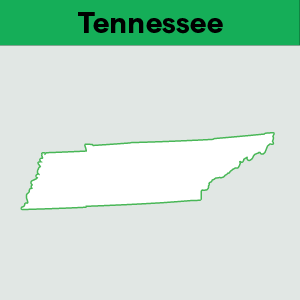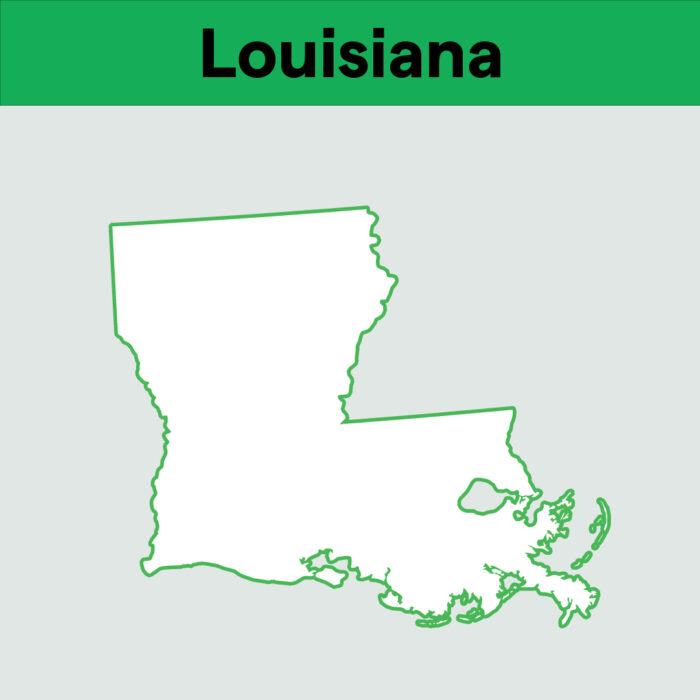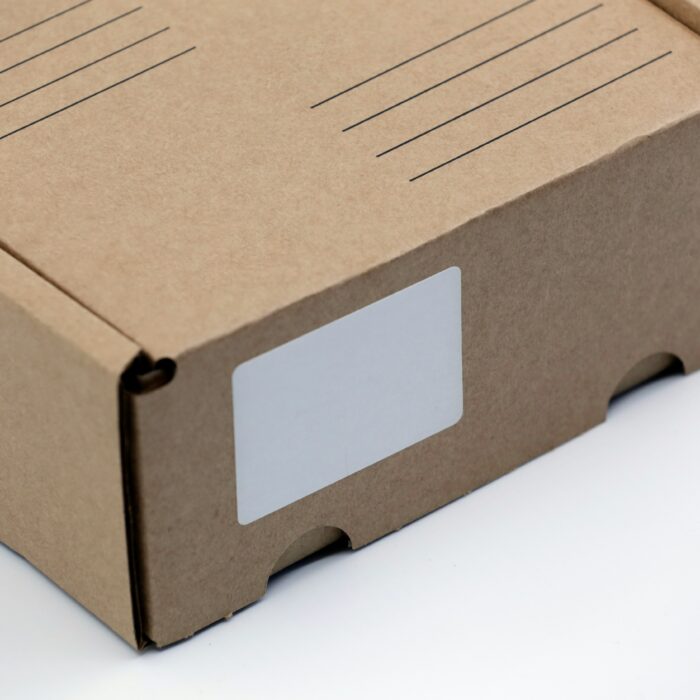Sales tax by state: Is there a tax on restaurant food?
by August 21, 2025
Determining food taxability is a challenging task. To help, we’ve listed all the states and their requirements for collecting sales tax on prepared food to go. For many restaurants, nothing will change, since prepared food for consumption on or off the premises is often taxable anyway (meaning restaurants are already collecting sales tax.)
Important note: Some restaurants are also pivoting toward offering grocery items, like frozen meats. While prepared food/restaurant food is mostly taxable, grocery items are non-taxable in some states. Check out our full state-by-state list on the taxability of grocery items.
Subscribe to our free sales tax newsletter
Sales tax is complex, and always changing. But staying up to date on sales tax news is crucial for businesses. Sign up to stay on top of changes that can impact your sales tax compliance.
Sign upRestaurant sales tax on take out food by state
Alabama – Prepared food to be consumed on or off the premises is taxable. Grocery items are also taxable.
Arizona – Prepared food to be consumed on or off the premises is taxable. Prepared food is considered:
- hot prepared food
- hot or cold sandwiches
- food served by an attendant to be eaten at tables, chairs, benches, etc. or within parking areas for in-car consumption
- food served with trays, glasses, dishes or other tableware
- beverages sold in cups, glasses or open containers
- food sold by caterers
- food sold within the premises of theaters, exhibitions, concerts, places of amusement, and any businesses that charge for admission
The Arizona Department of Revenue’s Restaurants & Bars publication explains tax guidelines for food served by dining establishments in more detail.
Grocery items are generally non-taxable in Arizona, and this publication contains special instructions for restaurants selling groceries: “Grocery stores, delicatessens and other retail outlets qualified to sell food tax exempt, but which also operate a restaurant on the premises, must keep separate records for the two activities. Food sold in the restaurant is taxable as a restaurant sale whether it is consumed on or off the premises.”
Arkansas – Prepared food is taxable, but grocery items are taxed at a reduced rate.
- food sold in a heated state or heated by the seller
- two or more food ingredients mixed or combined by the seller for sale as a single item
- food sold with an eating utensil provided by the seller, including a plate, knife, fork, spoon, glass, cup, napkin, or straw. “Plate” does not include a container or packaging used to transport the food.”
Prepared food does not include:
- Food that is only cut, repackaged or pasteurized by the seller
- Food containing raw animal products which require cooking by the consumer as recommended by the US Food and Drug Administration
California – California provides a Tax Guide for Restaurant Owners. According to the guide: “In California, all sales are taxable unless the law provides a specific exemption. For the restaurant industry, most taxable sales are going to be of food and beverages. However, you may also be required to collect sales tax on mandatory tips, corkage fees, and cover charges, among other things.”
There are also some exceptions, including “Sales of cold food products generally are not taxable. Cold food products include cold sandwiches, milkshakes, smoothies, ice cream, and cold salads, among others. Keep track of your sales of cold food items. The 80/80 rule applies when 80% of your sales are food and 80% of the food you sell is taxable. If this rule applies to you and you do not separately track sales of cold food products sold for take-out, 100% of your sales are taxable.”
Colorado – Food furnished by restaurants or other eating establishments is fully taxable.
Connecticut – In Connecticut, food sold by eating establishments or caterers are subject to sales tax. Effective October 1, 2019, the Connecticut sales and use tax rate on meals sold by eating establishments, caterers, or grocery stores is 7.35%. (This is the Connecticut state sales tax rate plus and additional 1% sales tax.)
Florida – Prepared food for immediate consumption sold in Florida is generally taxable.
Georgia – Prepared foods are taxable in Georgia, though there are some exemptions for food in a school setting.
Hawaii – Sales of food are generally subject to Hawaii sales tax.
Idaho – Sales of food are generally subject to Idaho sales tax.
Illinois – Food prepared for immediate consumption is taxable.
Indiana – Food for immediate consumption is taxable. Indiana further defines “food for immediate consumption”:
Sales of taxable prepared food include the following:
- food sold in a heated state or heated by the seller;
- two or more food ingredients mixed or combined by the seller for sale as a single item
- food sold with eating utensils provided by the seller, including plates, knives, forks, spoons, glasses, cups, napkins, or straws
Iowa – Prepared food is taxable in Iowa. “Prepared food“ is defined as any of the following:
- food sold in a heated state or heated by the seller, including food sold by a caterer
- two or more food ingredients mixed or combined by the seller for sale as a single item
- food sold with eating utensils provided by the seller, including plates, knives, forks, spoons, glasses, cups, napkins, or straws. A plate does not include a container or packaging used to transport food.
The following does not constitute prepared food:
- Food sold that ordinarily requires additional cooking by the consumer prior to consumption
- Food only cut, repackaged, or pasteurized by the seller
- Eggs, fish, meat, poultry, and foods containing these raw animal foods requiring cooking by the consumer
- Bakery items sold by the seller who baked them
- Food sold without eating utensils provided by the seller in an unheated state as a single item, which is priced by weight or volume.
Kansas – “Meals or drinks furnished by any restaurant, drinking establishment, or other place that regularly sells meals or drinks to the public are subject to sales tax.”
Kentucky – “Generally, meals served on or off the premises of a retailer do not constitute nontaxable sales of food items. Thus, food furnished, prepared, or served for consumption at counters or in cafes, restaurants, and the like are taxable. Similarly, food sold by retailers who ordinarily sell for consumption on or near the premises of the retailer are taxable, even though the food products may be sold for ‘take out’ or ‘to go’ and may be bagged, wrapped, or packaged and taken from the premises of the retailer.”
Louisiana – Food sold by eating establishments is subject to sales tax, with the exception of bakery products sold for consumption in the home.
Maine – Prepared foods are taxable in Maine at the prepared food tax rate of 8%.
Maryland – Food for immediate consumption is taxable.
Massachusetts – Food for immediate consumption, which includes food sold by a restaurant even if “to go,” is taxable
Michigan – Food for immediate consumption is taxable. Michigan defines this as:
- food sold in a heated state or that is heated by the seller
- two or more food ingredients mixed or combined by the seller for sale as a single item; or
- food sold with eating utensils provided by the seller, including knives, forks, spoons, glasses, cups, napkins, straws, or plates, but not including a container or packaging used to transport the food.
Minnesota – Prepared food sold by a retailer is taxable.
Mississippi – All food in Mississippi is taxable, with a few exceptions having to do with non-profits.
Missouri – Sales tax is imposed on sales of meals and drinks by places that regularly serve them to the public. Missouri provides reduced tax rates on certain food items
Nebraska – Retailers of prepared food must collect sales tax separate from the selling price. Some exemptions apply to nonprofits and public institutions. “Prepared food” in this context is:
- food sold with eating utensils provided by the seller;
- food sold in a heated state or heated by the seller;
- two or more food ingredients mixed or combined by the seller for sale as a single item, but not including: food that is only cut, repackaged, or pasteurized by the seller; food sold in an unheated state by weight or volume as a single item; or eggs, fish, meat, poultry, and foods containing these raw animal foods requiring cooking by the consumer to prevent food borne illness.
Nevada – Prepared food intended for immediate consumption is taxable.
New Jersey – Prepared food is taxable. “Receipts from the sale of prepared food in or by restaurants, taverns, or other establishments in the state, or by caterers, including in the amount of such receipts any cover, minimum, entertainment or other charge made to patrons or customers are subject to tax.”
New Mexico – The New Mexico Taxation and Revenue Department has issued new guidance on when grocery deliveries may be subject to gross receipts taxes. Receipts from food sold at a retail food store can be deducted by grocers when filing their gross receipts taxes, but some grocery stores have been paying gross receipts taxes on food deliveries and passing that cost along to customers. Whether or not those sales are taxable under the law depends on specific circumstances of the transaction.
- Under state law, food for home consumption is deductible from gross receipts if it is sold at a retail food store. That language is critical to understanding whether a food sale may or may not be deductible. For example, in different scenarios, the grocery store may deliver food itself or use a third-party delivery service, and a customer’s payment may be taken at the time the groceries are at the retail food store or at the time groceries arrive at the customer’s delivery location. Factors like these affect taxability. Any delivery service charge, however, typically would be subject to gross receipts tax
New York – “Restaurant-type food” is taxable. This includes:
“Restaurant-type” food sold by a restaurant, tavern, or similar establishment can generally be described as food or drink that is sold in a form ready to be eaten. It includes the following:
- food or drink sold for on-premises consumption;
- sandwiches
- self-service salad bars
- food or drink sold in a heated state; and
- unheated food or beverages sold for off-premises consumption that are not sold in the same form, condition, quantities and packaging as they are ordinarily sold in grocery stores.
In New York, taxability depends on how the food is sold. For example, a bag of bagels would not be taxable, but a sliced bagel sold ready-to-eat would be taxable. New York offers an in-depth guide to food taxability.
North Carolina – Prepared food is subject to sales tax.
North Dakota – “Nearly all sales of prepared food or meals by hotels, restaurants, convenience stores, delicatessens, concession stands, coffee shops, other eating places, and caterers are subject to sales tax.Sales of food products prepared for immediate consumption on or near the premises of the seller are taxable even though they are sold on a“take out” or “to go” basis. ”
Ohio – Ohio’s sales tax is a bit different than other states. “Food” that is to be consumed off the premises is not taxable. For example, if you operate a restaurant where some people come inside and some drive through and you sell food at the drive-thru, it isn’t taxable. But the food the patrons inside are eating is taxable. You can determine this by asking if the patron means to eat “here” or to-go.
Oklahoma – Sales of food is generally subject to sales tax in Oklahoma.
Pennsylvania – Most types of “ready-to-eat” food in Pennsylvania are taxable.
- Food or beverages purchased from persons engaged in the business of operating establishments from which ready-to-eat food and beverages are sold, including, but not limited to, restaurants, cafes, lunch counters, private and social clubs, taverns, dining cars, hotels, night clubs, fast food operations, pizzerias, fairs, carnivals, lunch carts, ice cream stands, snack bars, cafeterias, employee cafeterias, theaters, stadiums, arenas, amusement parks, carryout shops, coffee shops and other establishments whether mobile or immobile.
- For purposes of this clause, a bakery, a pastry shop, a donut shop, a delicatessen, a grocery store, a supermarket, a farmer’s market, a convenience store, or a vending machine is not considered an establishment from which food or beverages ready to eat are sold except for the sale of meals, sandwiches, food from salad bars, hand-dipped or hand-served iced based products including ice cream and yogurt, hot soup, hot pizza and other hot food items, brewed coffee and hot beverages.
Rhode Island – Sales of prepared food are subject to tax unless:
- Sold by a seller whose primary NAICS classification is manufacturing in sector 311, except sub-sector 3118 (bakeries);
- Sold in an unheated state by weight or volume as a single item;
- Bakery items, including bread, rolls, buns, biscuits, bagels, croissants, pastries, donuts, danish, cakes, tortes, pies, tarts, muffins, bars, cookies, tortillas; and is not sold with utensils provided by the seller, including plates, knives, forks, spoons, glasses, cups, napkins, or straws
South Carolina – While some food is tax-exempt in South Carolina, foods that are taxable include:
- Hot foods ready to eat
- Foods designed to be heated in the store
- Hot and cold food to be eaten at a lunch counter, in a dining area or anywhere else in the store or in a nearby area such as a mall food court or that are considered “prepared meals or food”
South Dakota – Food and food products are generally taxable.
Tennessee – Prepared foods in Tennessee are taxable. Prepared foods include:
- food sold in a heated state or heated by the seller;
- two (2) or more food ingredients mixed or combined by the seller for sale as a single item; or
- food sold with eating utensils provided by the seller, including plates, knives, forks, spoons, glasses, cups, napkins, or straws. A plate does not include a container or packaging used to transport the food
Texas – Prepared food and “food ready for immediate consumption” are taxable. This includes:
- food, food products, and drinks, including meals, milk and milk products, fruit and fruit products, sandwiches, salads, processed meats and seafoods, vegetable juice, and ice cream in cones or small cups, served, prepared, or sold ready for immediate consumption in or by restaurants, lunch counters, cafeterias, vending machines, hotels, or like places of business or sold ready for immediate consumption from pushcarts, motor vehicles, or any other form of vehicle
- food sold in a heated state or heated by the seller
- food sold with eating utensils provided by the seller
- two or more food ingredients mixed or combined by the seller for sale as a single item, including items that are sold in an unheated state by weight or volume as a single item, but not including food that is prepared at an off-site location, refrigerated food that is typically reheated prior to eating, or food that is only cut, repackaged, or pasteurized by the seller.
- Updated in June 2017: Bakery items sold by a bakery (whether or not heated up and utensils provided) and bakery items sold at a non-bakery location without plates or other eating utensils provided are both tax exempt.
Utah – Prepared foods are taxable except if sold to certain institutions like hospitals, churches or charitable institutions.
Vermont – Vermont has something called the Meals & Rooms tax that applies to prepared foods. It’s 9% on sales of prepared and restaurant meals and 10% on alcoholic beverages served in restaurants.
Virginia – Sales of prepared foods are generally taxable in Virginia.
Washington – Prepared food is taxable in Washington. Marijuana or marijuana-infused products are not considered tax-exempt food.
Washington D.C. – Food or drink prepared, served, or sold for immediate consumption is taxable.
West Virginia – Food sold in a heated state, prepared food, or food sold with eating utensils provided by the seller is all taxable
Wisconsin – Prepared food is taxable in Wisconsin. Prepared food includes:
- food sold with eating utensils provided by the seller;
- food sold in a heated state or heated by the seller;
- two or more food ingredients mixed or combined by the seller for sale as a single item, but not including: food that is only cut, repackaged, or pasteurized by the seller; food sold in an unheated state by weight or volume as a single item; or eggs, fish, meat, poultry, and foods containing these raw animal foods requiring cooking by the consumer to prevent food borne illness.
Wyoming – Food sales are generally taxable in Wyoming.








